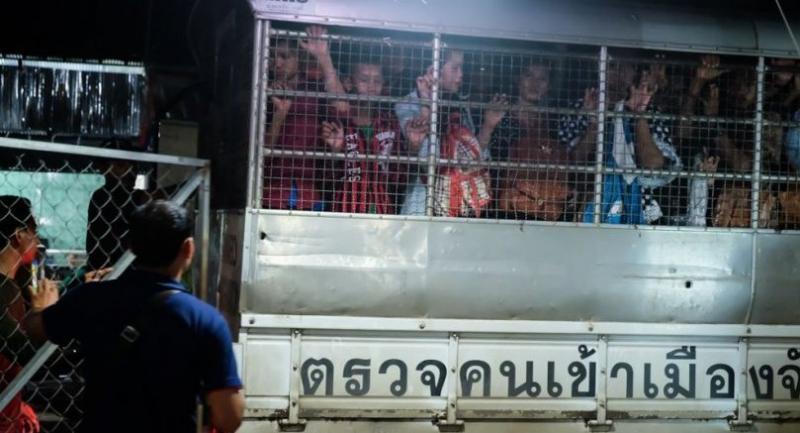Many Cambodian migrants still unregistered for work in Thailand

Phnom Penh - Despite a two-week window for undocumented migrants to get registered in Thailand, not all Cambodian migrants have been registered
The Thai Labour Ministry reported yesterday that nearly 223,000 Cambodians had registered at centres in the country during a two-week window for undocumented migrants to get papers, a number that falls well short of legalising all Cambodian workers in the country, according to estimates from experts.
Preeda Tongchumnum, a member of the Migrant Working Group in Thailand, said that registered migrants would receive a work permit valid until March 31 after their work status is verified, but that next steps were unclear.“We still need to wait for a government policy to renew the work permit for workers again,” she said.
While experts and Thai businesses advocate for an amendment of a harsh new Thai law that imposes strict punishments on undocumented migrants and their employers, and will go into effect at the start of next year, the government has no plans to make changes, according to an official of the Thai Employment Department.
Migrant rights workers have previously estimated that the number of undocumented Cambodian workers is as high as 500,000 – leaving many migrants and their employers exposed when the law kicks in.
Undocumented migrants throughout the region are at risk of abuse and exploitation, experts say, and a recent crackdown in Malaysia has led to arrests of thousands of undocumented migrants.
In an attempt to regulate migration, Cambodia, Laos, Myanmar, Thailand and Vietnam last Wednesday signed a Joint Declaration on Safe Labour Migration, vowing to “collaboratively strengthen cooperation”.
This includes “systematically addressing the root causes of irregular migration”, and to “comprehensively monitor” treatment of migrant workers.
However, Jelen Canzana Paclarin, executive director of Women’s Legal and Human Rights Bureau in Indonesia, said in an email that “the statement focused on legal and safe migration and [remains] silent on the issue faced by irregular and undocumented migrants”.
She argued a legally binding instrument was required to ensure the protection of all migrant workers “regardless of their status”.
To this end, 23 organisations endorsed a July 18 statement demanding Asean member states sign such an instrument to fully implement the 2007 Asean Declaration on the Protection and Promotion of the Rights of Migrant Workers. A plan of action, the statement said, should include “programs for the realization of decent work for migrant workers”.
Sumitha Shaanthinni Kishna, co-coordinator at Migration Working Group Malaysia, called for more cooperation among countries whose citizens tend to leave for work elsewhere. “[They] in fact have a strong bargaining power against receiving countries,” she said in an email, referring to countries that source labour from elsewhere. “Sending” countries competing against each other has the effect of giving receiving nations the advantage, she said, because they can accept migrants from countries that agree to the least labour protections. She pointed to Cambodia’s agreement to lift the ban on sending domestic workers to Malaysia as an example. “This is after Malaysia failed to get more domestic workers from Indonesia,” she said.
Kishna recommended concrete measures regionally, including agreements to regulate and punish recruiters; insisting on written contracts; restricting recruiter fees; pre-departure training for workers; prohibiting requirements by employers to forfeit passports and the establishment of a legal aid fund to help migrant workers in the receiving country, among others.
